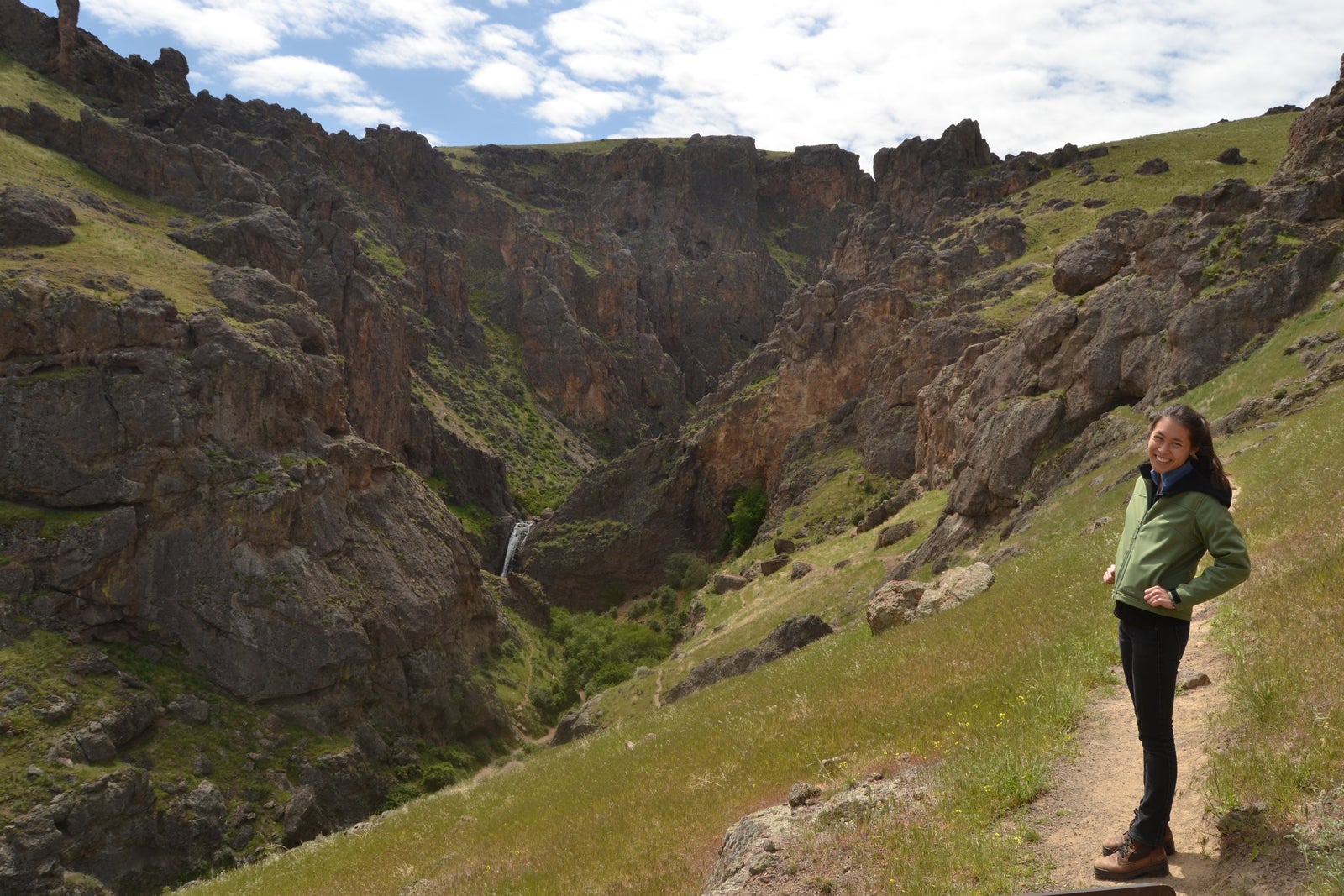
Access to the outdoors is invaluable but hard to quantify for many residents in recreation-heavy cities like Boise, not to mention for regional and city planners who balance growth and development with the preservation of natural assets.
That soon could change. Boise State University researchers have created a new way to demonstrate the positive physiological effects nature can have on humans by measuring cortisol
levels in their saliva. Cortisol is a steroid hormone that is released in response to stress.

Dr. Kathryn Demps, an associate professor of anthropology, along with Dr. Julie Heath, a biology professor, and biology master’s student Ellie Opdahl designed an experiment to test the cortisol levels in individuals’ saliva before and after hiking and biking in the Boise foothills. Demps noted this marked the first time that researchers have collected biological data to tie human stress levels to desert landscapes.
Between April-May 2017, Opdahl collected saliva samples from hikers and mountain bikers four days per week between 9 a.m. and 6:30 p.m. at the Camel’s Back Park Ridge to Rivers trailhead. Opdahl collected samples from volunteers before and after recreating, as well as administered a survey after recreation. Cameras and GPS tracking devices were lent to participants, who were encouraged to snap photos of scenery they felt was particularly beautiful or calming. In addition, the fieldwork was conducted on both weekends and weekdays to try and gauge any differences on the effects of outdoor recreation during crowded (weekend) and less crowded (weekday) times.
A National Science Foundation grant, Managing Idaho’s Landscapes for Ecosystems Services managed by Idaho EPSCoR, funded their research.
In total, 88 hikers participated. They were divided into 77 saliva samples, 63 surveys, 58 GPS tracks, and 22 photographs.
Researchers found a decrease in cortisol, in general, in all the hikers, but cortisol decreased the most in those who hiked through riparian biodiverse habitats.
“There’s something about this biodiverse landscape that is tied to stress decreases,” said Demps. “That’s good news; it means that conservation goals and human well-being goals are very closely tied. But it’s bad news in that people want to be in the places that should be preserved – and then they impact those spaces.”